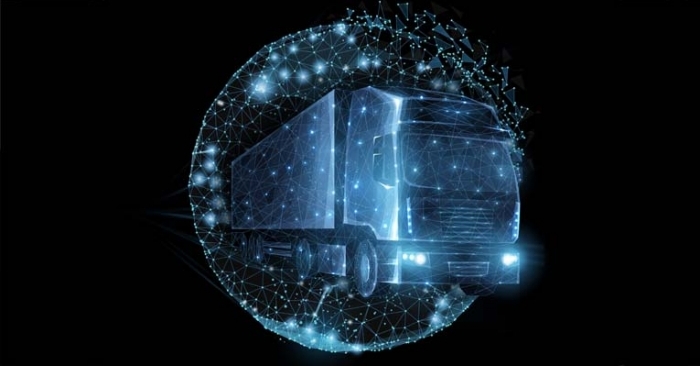Start-ups carving new channels in historically under-served road logistics: Deloitte Report
October 16, 2019: A host of new start-ups are disrupting the ecosystem of road logistics by organising the unorganised, historically under-served truck-owner community and meeting their existing and new needs, says the new Deloitte report.

October 16, 2019: A host of new start-ups are disrupting the ecosystem of road logistics by organising the unorganised, historically under-served truck-owner community and meeting their existing and new needs, says the new Deloitte report.
‘A time of reckoning: Road logistics in India’ is a report launched by Deloitte India to better understand the plight of the ‘owner-operator’ (truck driver), a key stakeholder in India's transport ecosystem. The report’s objective was to understand how any enterprise interested in this sector could have a positive impact on the lives of owner-operators.
According to the report, India’s road logistics sector is plagued by quite a few challenges, such as fragmentation in the ecosystem and information asymmetry due to multiple intermediaries that leads to low asset utilisation (as finding adequate loads can be difficult for a trucker). This is further compounded by limited digital capabilities, which could ensure a healthy flow of information.
Given this scenario, a host of start-ups have taken on the challenge of organising this largely unorganised sector to serve the owner-operator community. In the process, they are carving new channels and meeting both existing and new needs of the historically under-served truck owner community.
Harsh Kapoor, Director, Deloitte India, said “Our research has shown that key customer needs (of “loads and loans”) are starting to be met interestingly by out-of-industry players, typically start-ups. As such, traditional actors in this ecosystem, such as CV OEMs or fuel players, have an opportunity to invest in or collaborate with some fast-emerging businesses/platforms, to build more brand relevance and market traction.”
Rajeev Singh,Partner, Deloitte India, said “Collaborating with start-ups could allow traditional players access granular user data that covers vehicle use, maintenance patterns, and behavioural data (such as where truckers like to eat and rest). This data becomes a powerful foundation for launching value-added services targeted at truckers. Furthermore, this ecosystem provides an interesting platform for OEMs to engage with its target trucker segment and improve its brand image. For financiers, such a platform allows access to alternate data that can be used to provide loans. Similarly, insurers can provide customised data quotes based on truck usage and thereby, incentivise the right driving behaviour. The use cases are plenty but the opportunity to adopt is now. The time to adopt and adapt is fast closing for the incumbents.”
Further changes in the macro-environment around data affordability, unified tax regime, and the emergence of digital payments have increased the attractiveness of this sector. As a result, the sector has attracted ~US$ 500 million in funding so far.
In addition to providing loads to truckers, start-ups in this space have been able to add value-added products and services, such as fuel cards, fast tags, and insurance. These start-ups are laying the building blocks of an ecosystem. Over time, they could provide multiple products and services. At present, truckers rely on building their own ecosystem that limits their ability to expand into new routes as they seldom have knowledge of “trusted” transporters and service providers. The development of such an ecosystem opens opportunities for truckers to explore new markets. It also provides an interesting opportunity for traditional players.



